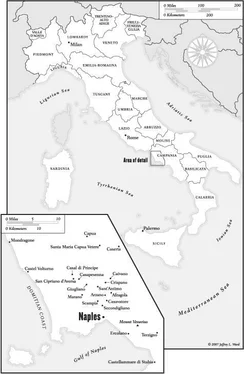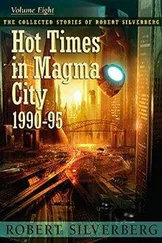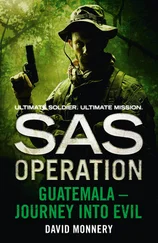Roberto Saviano - Gomorrah - A Personal Journey into the Violent International Empire of Naples’ Organized Crime System
Здесь есть возможность читать онлайн «Roberto Saviano - Gomorrah - A Personal Journey into the Violent International Empire of Naples’ Organized Crime System» весь текст электронной книги совершенно бесплатно (целиком полную версию без сокращений). В некоторых случаях можно слушать аудио, скачать через торрент в формате fb2 и присутствует краткое содержание. Жанр: Старинная литература, на английском языке. Описание произведения, (предисловие) а так же отзывы посетителей доступны на портале библиотеки ЛибКат.
- Название:Gomorrah: A Personal Journey into the Violent International Empire of Naples’ Organized Crime System
- Автор:
- Жанр:
- Год:неизвестен
- ISBN:нет данных
- Рейтинг книги:5 / 5. Голосов: 1
-
Избранное:Добавить в избранное
- Отзывы:
-
Ваша оценка:
- 100
- 1
- 2
- 3
- 4
- 5
Gomorrah: A Personal Journey into the Violent International Empire of Naples’ Organized Crime System: краткое содержание, описание и аннотация
Предлагаем к чтению аннотацию, описание, краткое содержание или предисловие (зависит от того, что написал сам автор книги «Gomorrah: A Personal Journey into the Violent International Empire of Naples’ Organized Crime System»). Если вы не нашли необходимую информацию о книге — напишите в комментариях, мы постараемся отыскать её.
Gomorrah: A Personal Journey into the Violent International Empire of Naples’ Organized Crime System — читать онлайн бесплатно полную книгу (весь текст) целиком
Ниже представлен текст книги, разбитый по страницам. Система сохранения места последней прочитанной страницы, позволяет с удобством читать онлайн бесплатно книгу «Gomorrah: A Personal Journey into the Violent International Empire of Naples’ Organized Crime System», без необходимости каждый раз заново искать на чём Вы остановились. Поставьте закладку, и сможете в любой момент перейти на страницу, на которой закончили чтение.
Интервал:
Закладка:
Investigations also probed the clan’s stronghold on public works contracts, which went to firms connected to their concrete and earth-moving operations; scams regarding illegally obtained agricultural subsidies, which were injurious to the European Economic Community; and hundreds of homicides and business relationships. As I awaited the sentence along with everyone else, it occurred to me that this was not just another trial, not a simple, ordinary prosecution of Camorra families in southern Italy. It seemed more like a trial of history, the Nuremberg for a whole generation of the Camorra. But unlike the high officers of the Reich, many of the Camorristi present were still in command, still the heads of their empires. A Nuremberg without victors. The accused in cages, in silence. Sandokan was on videoconference from the Viterbo prison; it would have been too risky to move him. The only sound in the courtroom was the lawyers’ voices: over twenty law firms were involved and more than fifty lawyers and paralegals had studied, followed, observed, and defended. The relatives of the accused were huddled together in a small room next to the bunker wing, their eyes glued to the monitors. When the Court president, Catello Marano, picked up the thirty-page verdict, there was silence. A nervous silence, accompanied by an orchestra of anxious sounds: heavy breathing, hundreds of throats swallowing, watches ticking, dozens of muted cell phones silently vibrating. The president read the list of the guilty first. Twenty-one life sentences, more than 750 years of prison. Twenty-one times he pronounced the sentence of life imprisonment, often repeating the names of the condemned. And then seventy times he read out the years that other men, associates and managers, would spend in prison for their alliance with the terrible Casalese power. By one thirty it was almost all over. Sandokan asked to speak. He was agitated and wanted to respond to the sentence, repeat the claim of the counsel for the defense: he was a successful businessman, but a plot of envious, Marxist judges had deemed the local bourgeoisie a criminal power rather than the product of entrepreneurial and economic talent. He wanted to shout that the sentence was unjust. According to his logic, all the dead resulted from local feuds that were part of the rural culture, and not from Camorra wars. But this time Sandokan was not allowed to speak. Silenced like an unruly schoolboy, he started to yell, so the judges had the audio disconnected. A big, bearded man continued to squirm on the screen until the video was cut as well. The courtroom emptied immediately, the police and carabinieri slowly dispersing as the helicopter hovered over the courtroom bunker. It’s strange, but I didn’t have the feeling that the Casalesi clan had been defeated. Many were thrown in jail for a few years, some bosses would never come out alive, and perhaps a few would eventually decide to cooperate and thus regain a piece of their existence beyond bars. Sandokan’s rage must have been the suffocating anger of a powerful man who holds the entire map of his empire in his head but cannot control it directly.
The bosses who decide not to cooperate with the authorities live off a metaphysical, almost imaginary power, and they do everything possible to forget about the businessmen whom they supported and launched, those who, not being clan members, get off scot-free. If they wanted to, the bosses could make sure they ended up in jail as well, but they would have to talk first, and this would immediately put an end to their supreme authority and place all their family members at risk. But even then—something far more tragic for a boss—they would not be able to map the routes of their money and legal investments. Even confessing and revealing their power, they would never know exactly where all their money ended up. The bosses always pay—they can’t do otherwise. They kill, they direct firing squads, they’re the first link in the chain of the extraction of illegal capital; this means that their crimes are always traceable, unlike the diaphanous economic crimes of their white-collar men. Besides, bosses are not eternal. Cutolo gives way to Bardellino, Bardellino to Sandokan, Sandokan to Zagaria, Zagaria to La Monica, La Monica to Di Lauro, Di Lauro to the Spaniards, and the Spaniards to God knows whom. The economic power of the Camorra System lies exactly in its continual turnover of leaders and criminal choices. One man’s dictatorship is always brief; if the power of a boss were long-lasting, he would raise prices, create a monopoly, making rigid markets, and keep investing in the same sectors rather than exploring new ones. Instead of adding value in the criminal economy, he would become an obstacle to business. And so, as soon as a boss takes over, others ready to take his place start to emerge, figures eager to expand, to stand on the shoulders of the giants they helped create. Something that the journalist Riccardo Orioles, one of the most astute observers of power dynamics, always remembered: “Criminality is not power pure and simple, but one kind of power.” There will never be a boss who wants a seat in government. If the Camorra had all the power, its business, which is essential to the workings of the legal and illegal scale, would not exist. In this sense every arrest and maxi-trial seems more like a way of replacing capos and breaking business cycles than something capable of destroying a system.
The faces that were printed the next day in the newspapers, all lined up one next to another—bosses, supporters, young affiliates, and seasoned old guard—did not represent an infernal circle of criminals but pieces of a mosaic of power that no one had been able to ignore or defy for twenty years. After the Spartacus trial, the imprisoned bosses started implicitly and explicitly threatening judges, magistrates, and journalists—everyone they considered responsible for turning a group of cement and mozzarella managers into killers in the eyes of the law.
Senator Lorenzo Diana was their favorite target. They sent letters to the local papers, made explicit threats during trials. Immediately following the Spartacus sentencing, some people went to the senator’s brother’s trout farm and scattered the fish around, leaving them wiggling on the ground to die slowly, suffocating in the air. Some pentiti even reported attempts on the senator’s life on the part of the organization’s “hawks.” Operations that were halted through the intervention of more diplomatic elements of the clan. Diana’s police escort also helped dissuade them. Armed escorts are never an obstacle for the clans; they’re not afraid of bulletproof cars and policemen. But it is a sign that the man they want to eliminate is not alone, that they can’t so easily rid themselves of him as they could an individual whose death would concern only his family circle. Lorenzo Diana is one of those politicians who decided to reveal the complexity of the Casalese power rather than generically denounce criminals. He was born in San Cipriano d’Aversa and experienced firsthand the emergence of Bardellino and Sandokan, the feuds, massacres, and business operations. He can speak about that power better than anyone else, and the clans fear his knowledge and his memory. They fear that from one moment to the next he can reawaken the national media’s interest. They fear that the senator will report to the Anti-Mafia Commission what the press, attributing everything to local crime, is ignorant of. Lorenzo Diana is one of those rare men who knows that fighting the power of the Camorra calls for infinite patience, the sort of patience that starts over from the beginning, again and again, that pulls the threads of the economic knot one by one to arrive at the criminal head. Slowly, but with perseverance and anger, even when your attention wanes, even when it all seems futile, when you’re lost in a metamorphosis of criminal powers that change but are never defeated.
Читать дальшеИнтервал:
Закладка:
Похожие книги на «Gomorrah: A Personal Journey into the Violent International Empire of Naples’ Organized Crime System»
Представляем Вашему вниманию похожие книги на «Gomorrah: A Personal Journey into the Violent International Empire of Naples’ Organized Crime System» списком для выбора. Мы отобрали схожую по названию и смыслу литературу в надежде предоставить читателям больше вариантов отыскать новые, интересные, ещё непрочитанные произведения.
Обсуждение, отзывы о книге «Gomorrah: A Personal Journey into the Violent International Empire of Naples’ Organized Crime System» и просто собственные мнения читателей. Оставьте ваши комментарии, напишите, что Вы думаете о произведении, его смысле или главных героях. Укажите что конкретно понравилось, а что нет, и почему Вы так считаете.












